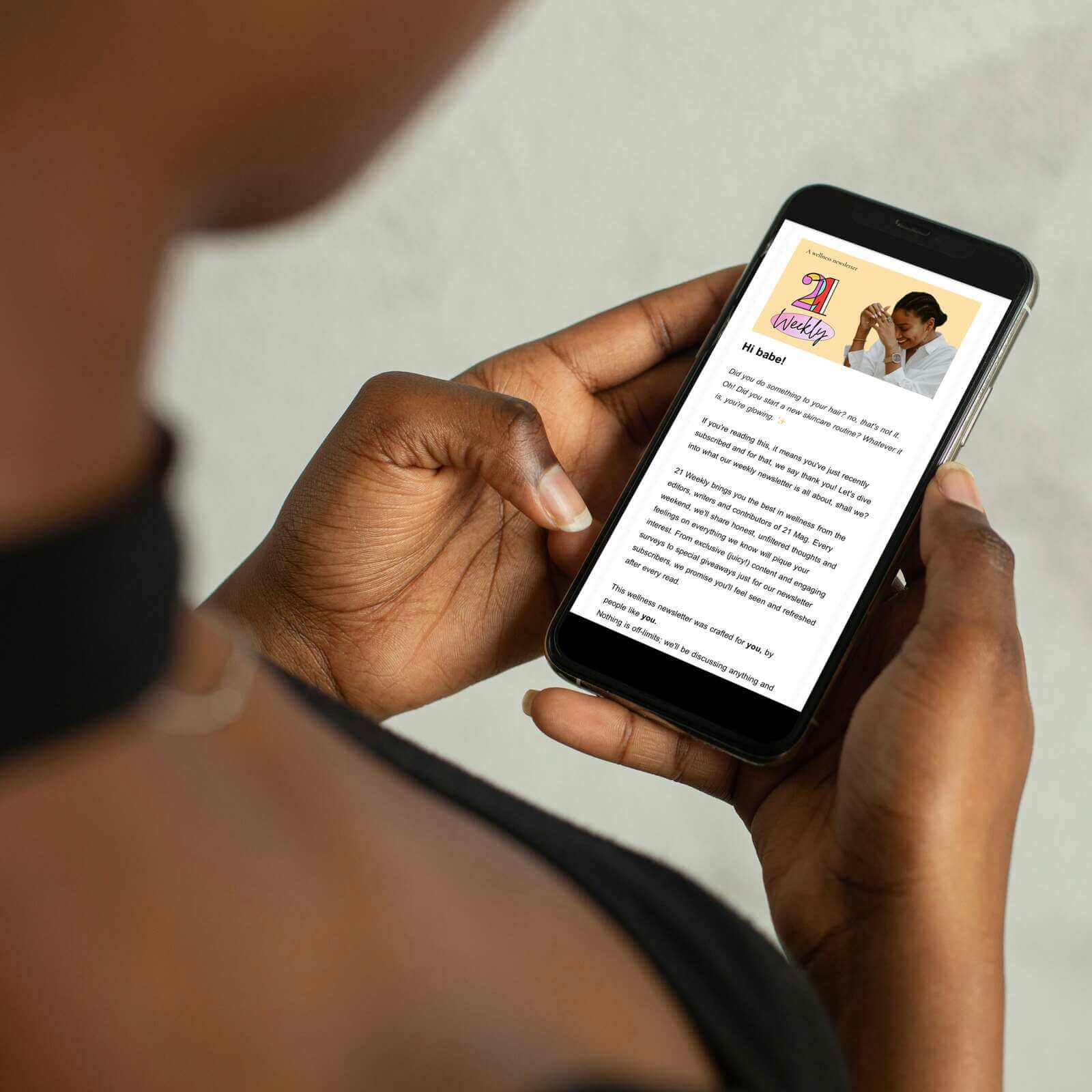
“Follow me,” I’d say to my friends, a phrase that was the unofficial anthem of my childhood. It wasn’t a request for a grand expedition; it was an invitation into my immediate, unedited present. “Follow me” to the salon to plait flower in the basket against classes for Monday. “Follow me” to the kitchen to steal another piece of meat from the pot. “Follow me” while I try this ridiculously stupid bike jump I will almost certainly regret. “Follow me” to the mall to see my crush. It was a simple command that meant my friends were my shadows, my co-conspirators, witnessing every triumph, every minor disaster, every ordinary Tuesday that became extraordinary simply because they were there. They were integral, present, and woven into the very fabric of my life as it unfolded. And usually, all they asked in return was for me to follow them back when they needed, or even just merely wanted my presence.
Now, the anthem has changed. The phrase I am guilty of using most often is “Let’s catch up.” It’s a well-intentioned, perfectly reasonable suggestion. But unlike its predecessor, it’s not an invitation into the now, it’s more of a booking for the future. We consult our digital overlords—Google Calendar, Outlook—searching for a sliver of overlapping availability weeks from now. In the days leading up to our perfectly scheduled two-hour slot, I find myself mentally cataloguing moments. I hoard memories like souvenirs, polishing them into neat, digestible anecdotes that I can hand over when we finally meet. This will be a good story for Ngozi. I have to remember to tell Ella about this.
It hit me during one of these perfectly pleasant, perfectly sterile catch-ups. As I recounted a recent work crisis and my friend detailed her immigration plans, I realized what was happening. We were simply exchanging press releases about our lives after certain life events had concluded. We were stuck. Stuck in what I’ve come to know as ‘The Catch-Up Trap.’ It’s a trap built with the best of intentions, paved with busy schedules and adult responsibilities. But it’s a trap nonetheless, one that slowly starves a friendship of the very thing it needs to survive: shared presence.
The Allure and Illusion of the “Catch-Up”
The “catch-up” has become the default mode of many adult friendships. The conversation inevitably revolves around a curated highlight reel: the promotion, the new apartment, the romantic breakup, the exciting vacation, the latest family milestone. We download each other on the significant events, and in that moment, there’s a comforting illusion of connection. We feel informed, up-to-date, like we’re still deeply involved in each other’s lives.
But peel back that layer, and a more somber truth emerges: these friends aren’t really part of your life anymore; they’re merely hearing about your life. The real-time involvement, the shared laughter over an inside joke only you two would understand, the silent comfort of a friend witnessing a tough moment – these are conspicuously absent.
Why Do We Get Stuck in Catch-Up Traps?

It’s easy to point fingers, but the reality is, the trap is often laid by the very complexities of adulting itself.
Life Gets Complicated (and Demanding): Between demanding careers, the ever-present responsibilities of family, the seductive pull of side hustles, and the sheer effort of keeping your head above water, our schedules become battlegrounds. Every minute is accounted for, every hour is a precious commodity. It’s simply easier and more convenient to slot in a quick brunch date than to carve out a weekend, let alone a full day, for a shared experience.
The Tyranny of Convenience: Our modern lives are optimized for efficiency. Apps deliver food, services come to our door, and information is at our fingertips. This mindset subtly seeps into our relationships. We seek the most efficient way to maintain connection, and a “catch-up” provides that immediate gratification without requiring significant logistical effort.
Fear of the “Messy Middle”: When we share highlight reels, we present polished versions of ourselves and our lives. There’s less pressure to be vulnerable, to expose the everyday struggles or the mundane moments that make up the bulk of our existence. Sharing those “messy middles” requires a deeper level of trust and presence, which can feel daunting when you’re already pressed for time.
The Social Media Effect: While seemingly a way to stay connected, social media can paradoxically contribute to the catch-up trap. We often feel we already “know” what our friends are up to because we’ve seen their posts. This can reduce the urgency or perceived need for in-person, real-time interaction, making catch-ups feel sufficient.
The Depressing Reality Of The Catch-Up Trap

The realization that more and more of your friendships are becoming “catch-up” ones can be genuinely depressing. It hits hardest when you reflect on those life moments where your friends used to have a front-row seat. Now, they’re relegated to the audience, hearing the recap long after the curtain has fallen.
This lack of real-time involvement creates a growing chasm. It makes it feel like they aren’t truly part of your life journey anymore, but rather distant observers. The shared history becomes static, and the opportunity to create new, vibrant, shared memories dwindles.
How to Escape The Catch-Up Trap and Form Deeper Connections

Breaking free from the catch-up trap requires intentionality and a willingness to redefine what adult friendship looks like.
1. Shift from “Catch-Up” to “Create-More”:
Instead of just recounting past events, actively plan activities that create new shared memories.
- The “Follow Me” Revival: Reintroduce spontaneity. Text a friend: “I’m going for a walk in my estate, want to join?” or “Heading to that new cafe, come along?”
- Embrace the Mundane Together: Friendship isn’t always about grand adventures. Can you run errands together? Cook a meal side-by-side? Help each other with a home project? Sharing the ordinary makes it extraordinary.
- Joint Hobbies/Interests: Find an activity you both enjoy – a book club, a hiking group, a cooking class. Consistent, shared activities naturally foster new memories.
2. Prioritize Presence, Not Perfection:
Don’t wait for the Instagrammable moment or a meticulously planned outing. Sometimes, the most meaningful connections happen in the imperfect, unplanned spaces.
- Lower the Bar for Interaction: A 30-minute pop-in, cozy-maxxing or bed-rotting at their apartment or even a shared virtual activity (like watching a movie simultaneously while on a call) can be more connecting than a formal 3-hour dinner every few months. Remember, you don’t need a week-long vacation to create memories. Look for small, accessible adventures in your everyday life.
- Be Vulnerable with Your “Now”: Instead of only sharing successes, be open about what you’re currently experiencing – the challenges, the small joys, the frustrations. This invites friends into your present reality.
3. Communicate Your Intent:
Let your friends know you miss the deeper connection and want to break free from the catch-up cycle. Be honest about your desire for more shared experiences, and more quality time, rather than just shared updates.
- Suggest Specific Activities: Instead of “Let’s catch up soon,” try “I’m planning to check out the new art exhibit next Saturday, want to come?”
Breaking Free
Adulthood doesn’t have to mean relegating friendships to infrequent debriefings. While life will undoubtedly remain complicated, consciously choosing to prioritize presence over mere updates can transform your platonic connections. Don’t get stuck on the good old days. Actively create new, better ones, allowing your friends to once again have that front-row seat to the beautiful, messy, and ever-unfolding journey of your life.







